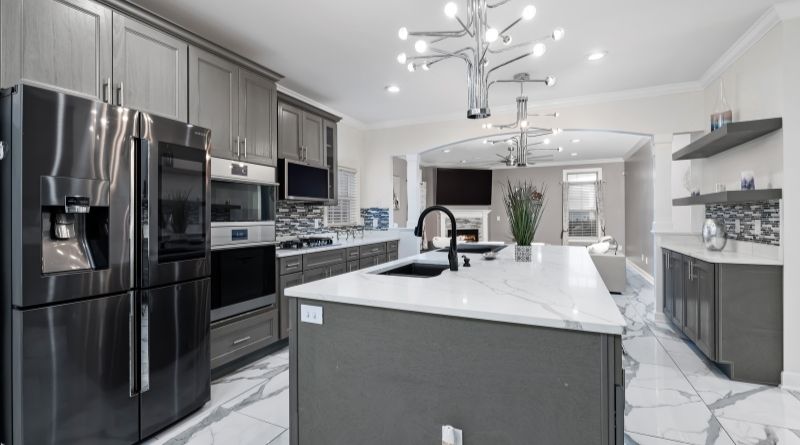Is it Time to Upgrade My Kitchen?
You have lived in your house for years and have never had a problem with the kitchen. But things are changing. Your kitchen isn’t performing the way it once did. It doesn’t have the same efficient feel or it feels dated to you.
Upgrading the kitchen can seem like a nuisance, despite its allure. How can you tell whether you truly need one? Which indications point to the necessity for change?
Having these answers could assist you in making the best choice as soon as it’s necessary.
So continue reading to find out the five indications that your kitchen needs to be updated! You may find yourself desperate to get in touch with a local expert.
1. Excessive Upkeep Cleaning Schedule
It goes without saying that keeping your kitchen clean is crucial. It’s also one of the areas in your house that requires a deeper cleaning. Kitchens naturally retain moisture and food waste, so cleaning them down frequently is necessary to keep bacteria from growing and disarray from occurring.
However, there comes a time when doing the kitchen gets to be too much of a bother. Cleaning is much, much tougher if the kitchen materials are too porous or if the stains are too hard to remove. This can be the case, particularly if your kitchen is situated within an older home.
The task will be much easier with a few straightforward kitchen renovation ideas. Among these concepts are:
- converting to appliances made of stainless steel
- Swapping out your flooring for something more stain-resistant
- Replacing your backsplash and countertops with materials that are stain- and water-resistant
These techniques will not only reduce the amount of work on your Sunday errand list, but they will also help to better avoid the growth of bacteria. Consider these adjustments as an investment in your well-being and weekend leisure.
2. Tight Space
Many people don’t choose to have a small kitchen. Cooking a midweek supper may be a nuisance, even for those who aren’t gourmets, if they don’t feel at ease in the space they’re using. This is why it’s so important to implement tiny kitchen modifications that maximize your available space.
The primary cause of a small kitchen area is insufficient storage. This is particularly true if you own numerous countertop appliances, including a toaster oven, air fryer, and many others.
This storage problem can be solved in a number of ways, especially with kitchen cabinets. Upgrade your kitchen cabinets by extending them to the ceiling and adding more shelves to accommodate additional cookware and appliances. Furthermore, you can also:
- Remodel kitchen walls to accommodate built-in shelves
- Include storage beneath the kitchen island.
- For more effective storage inside storage units, add slots to drawers and cabinets.
3. Mildew/Mold/Seepages
If anything, the existence of mold, mildew, or leaks should prompt you to take quick action on home renovation projects. It’s not only that it smells weird and has an ugly appearance. The reason for this is because any one of these three conditions has the potential to signal or create a bacterial breeding environment.
The problem can’t be stopped by avoiding the region; if there is enough moisture, it can spread. Additionally, mold and mildew can lead to airborne illnesses that are crippling to every home’s occupant, particularly those with respiratory ailments.
Leaks can potentially result in future mold and mildew growth, at the very least. In the worst case scenario, though, it can be a sign that mold and mildew are already present but hidden.
Any leaks are most likely the result of a plumbing problem of which a plumber in Melbourne, FL may be able to help. . However, be aware that even a small error in a do-it-yourself plan could render your kitchen unusable before you grab the wrench. Never be afraid to get in touch with a plumbing expert if you need assistance with plumbing.
Therefore, if your kitchen is prone to developing these issues, don’t hesitate to renovate your home as needed, if only for the benefit of your health. It’s a good idea to configure your kitchen for optimal health, which may involve replacing materials or making necessary infrastructure repairs.
4. Lighting Layout
Proper lighting is essential in a kitchen. This goes beyond just making sure it’s bright enough or replacing regular bulbs with LED ones.
Yes, excellent central illumination is essential. However, this isn’t merely to prevent you from tripping over your footstool. Additionally, it’s to keep you as safe as possible when preparing meals—particularly when working with sharp instruments.
Your cooking experience can be greatly improved by placing the lights correctly. Here are some ideas to make your lighting arrangement better:



